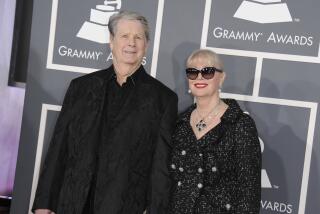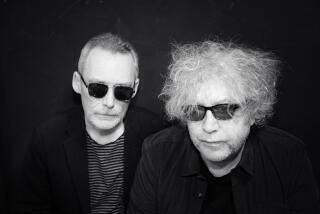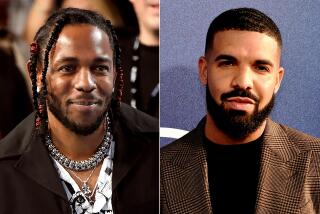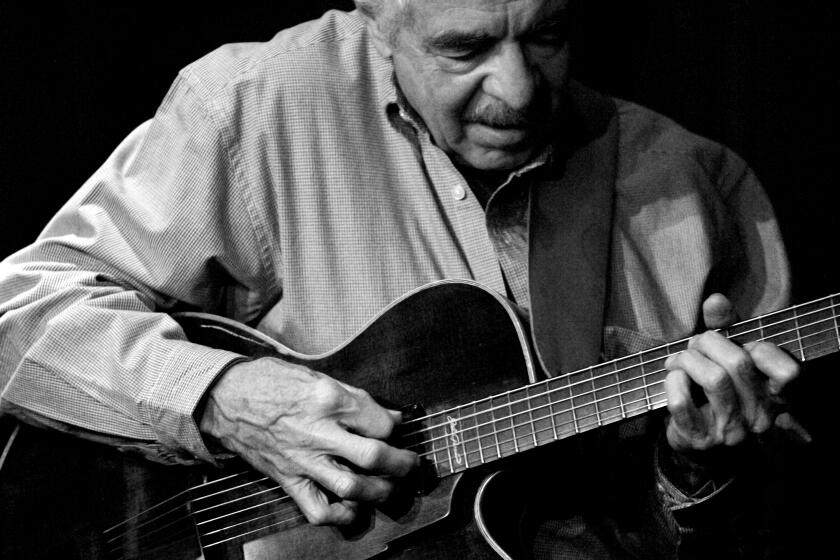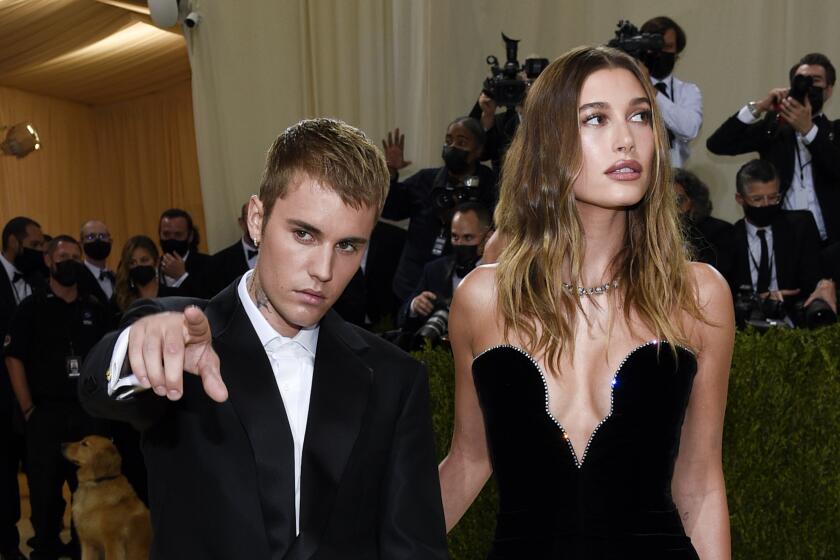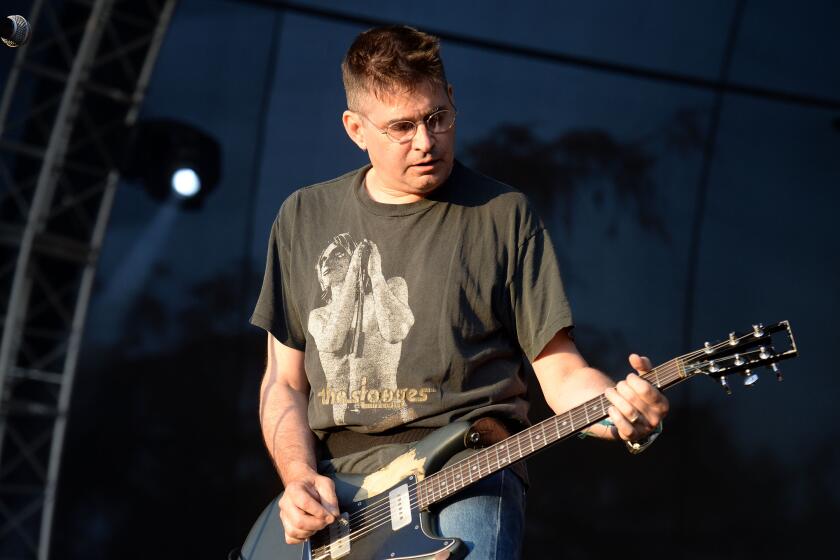Cohen’s appeal goes beyond ageless lyrics
Most musical legends have a horde of imitators nipping at their legacies, but there will never be a new Leonard Cohen.
Sure, a young pretender could copy Cohen’s ground-glass growl, or whip out a Bible and some volumes of European poetry and nail his reference points, but the fullness of meaning that Cohen’s songs achieve is nearly impossible to emulate.
His compositions don’t simply echo folk ballads and hymns -- they strive for the quality those songs gain through the centuries, the sense that no one and everyone wrote them.
“I find my own opinions very tiresome and predictable,” Cohen once told an interviewer. So he strives to create songs that belong to him through myth, history, the turn of the world.
In this way, Cohen’s songs were made to be not imitated but interpreted. Yet another tribute to the man, this one organized by his longtime backup singer Perla Batalla, took place at Royce Hall on Saturday. Under Batalla’s eclectic direction, “The Gospel According to Leonard Cohen” proved the universality of Cohen’s distinctive art.
Batalla’s event couldn’t help but recall “Leonard Cohen: I’m Your Man,” the critically lauded 2006 documentary built around a tribute concert produced by Royce Hall regular Hal Willner and featuring snazzy stars such as Rufus Wainwright and U2.
Batalla, who has just released her own excellent Cohen tribute album, “Bird on the Wire,” appears in the documentary. Her own show, however, took Cohen’s oeuvre in new directions.
Big-name participants included Jackson Browne, whose graceful ennui suited the late-career gem, “A Thousand Kisses Deep”; Dave Alvin, who delivered an oracular reading of “Democracy,” and Michael McDonald, who coped with the burden of singing Cohen’s one truly overexposed song, “Hallelujah,” by making it a full-force gospel excursion (complete with backing from the choir from Batalla’s alma mater, John Adams Middle School in Santa Monica).
Guitarists Bill Frisell and Greg Leisz anchored a top-notch band and string section; Steve Weisberg was musical director.
The program’s signal twist was Batalla’s insight that her Latina heritage could enrich her readings of Cohen’s songs. She sang in Spanish and English, her gorgeous alto persuasive in both.
Most intense was a duet with Javier Colis, a Madrid-based rocker making his California debut. The rough-edged Colis is a star at home, and could become one here; his howling dive into “The Butcher” (or “Le Carnicero”) was the night’s only really sexy moment. Martha Gonzales of the East L.A. band Quetzal also excelled, transforming “Sisters of Mercy” into a foot-stomping corrido, and making “Famous Blue Raincoat” as richly enigmatic in Spanish as it is in English.
Cohen in Spanish contradicted any thought that his work is only about lyrics: His primal melodies easily attached to a new language.
The veteran soul shouter Howard Tate took Cohen’s songs, especially a raucous “Tower of Song,” into the deep South, making them into testimonials worthy of a fainting spell. With a flourish, rocker gal Jill Sobule brought “First We Take Manhattan” into the Berlin of “Cabaret,” a canny choice for that fable of political resistance.
Batalla and fellow Cohen backup singer Julie Christensen nearly stole the star-studded “I’m Your Man” film with their version. They did so again at Royce Hall, their passion and clarity bringing the glow of the sacred into the room. Cohen would have been proud to hear it. But maybe he’s content to let his songs become universal without him.
More to Read
The biggest entertainment stories
Get our big stories about Hollywood, film, television, music, arts, culture and more right in your inbox as soon as they publish.
You may occasionally receive promotional content from the Los Angeles Times.
